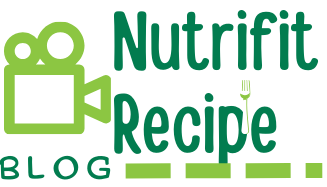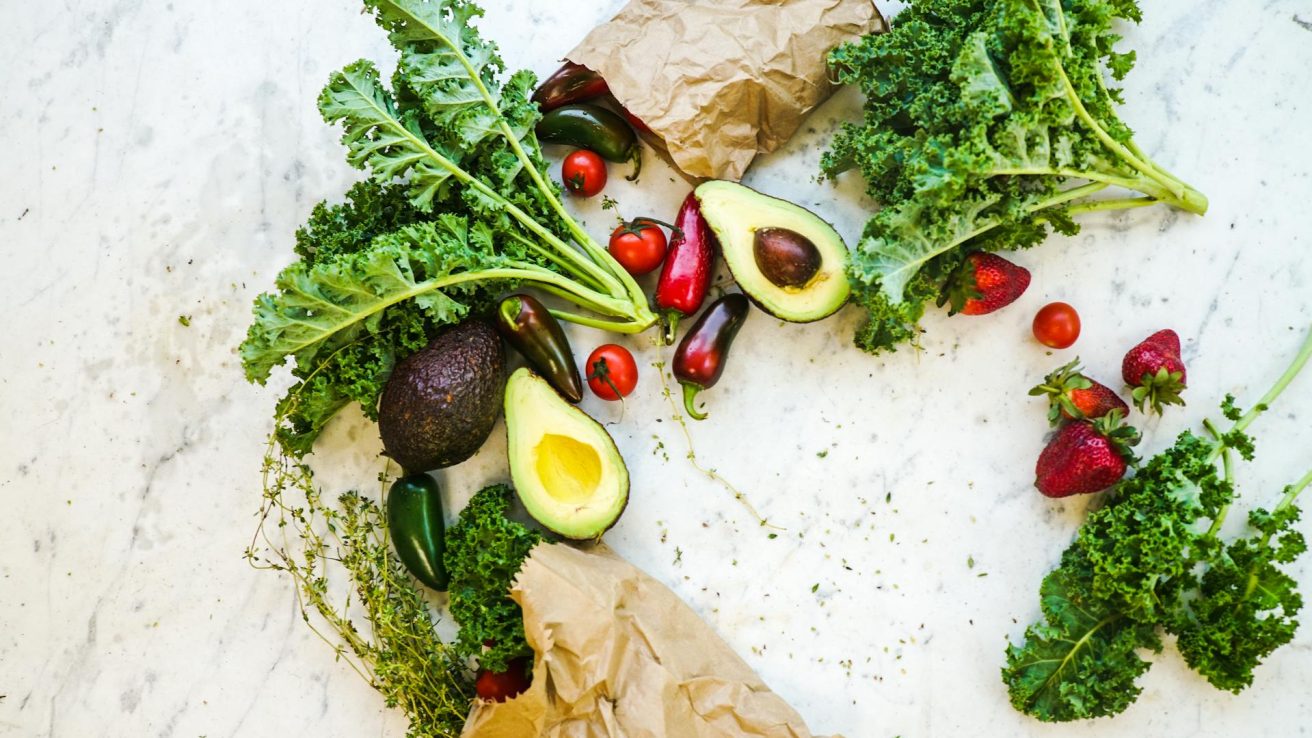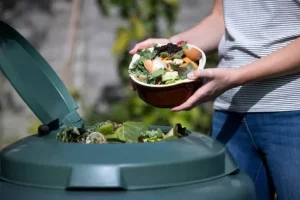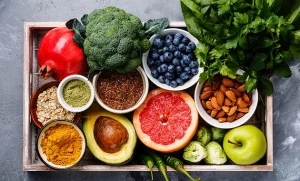As we move into 2024, sustainable eating continues to gain traction as an essential part of reducing our environmental footprint. With the growing awareness of climate change, deforestation, and resource depletion, making more eco-conscious food choices can significantly contribute to the health of our planet. Sustainable eating focuses on consuming food in ways that are better for the environment, support local economies, and promote overall well-being. Here are some key tips for adopting a more sustainable approach to eating in 2024.
Focus on Plant-Based Meals
One of the most effective ways to eat sustainably is by incorporating more plant-based meals into your diet. Producing plant-based foods generally requires fewer resources, including water and land, compared to animal agriculture. Additionally, plant-based diets have a smaller carbon footprint, helping reduce greenhouse gas emissions that contribute to global warming.
You don’t have to eliminate meat completely, but reducing your consumption of animal products can have a significant environmental impact. Start by incorporating more vegetables, grains, legumes, and plant-based proteins like tofu or tempeh into your meals. A simple step towards sustainability is opting for “Meatless Mondays” or cooking plant-based meals a few times a week.
Support Local and Seasonal Produce
Buying local and seasonal produce is a great way to support sustainable eating practices. When you purchase food grown close to home, you reduce the environmental costs associated with transportation and refrigeration. Local food often has a smaller carbon footprint since it doesn’t need to be shipped long distances, helping to lower the overall energy required to get it to your plate.
Seasonal produce is not only fresher and more flavorful, but it’s also often cheaper since it doesn’t have to be grown in artificial conditions or transported from far-off regions. Visit local farmers’ markets or join a community-supported agriculture (CSA) program to access fresh, locally grown fruits and vegetables while supporting sustainable farming practices.
Reduce Food Waste
Food waste is a major contributor to environmental damage, with millions of tons of edible food being thrown away every year. Not only does this waste contribute to landfill issues, but decomposing food in landfills produces methane, a potent greenhouse gas. To combat this, try to be more mindful of how much food you buy and consume.
One effective way to reduce food waste is by practicing portion control and only buying what you need. Use leftovers creatively in new meals, such as turning vegetable scraps into homemade broths or using day-old bread to make croutons. Composting food scraps instead of throwing them away also helps divert waste from landfills and creates nutrient-rich soil for gardening.
Regenerative Foods
Organic farming practices often have a lower environmental impact compared to conventional farming, as they avoid synthetic pesticides, fertilizers, and genetically modified organisms (GMOs). Organic farms also tend to prioritize soil health and biodiversity, contributing to a healthier ecosystem.
Regenerative agriculture takes this a step further by focusing on practices that restore and enhance soil health, sequester carbon, and increase biodiversity. Look for food products that are certified organic or come from regenerative farming practices. By supporting these practices, you can contribute to a more sustainable food system.
Embrace Minimal Processing
Highly processed foods tend to have a larger environmental footprint due to the energy-intensive production processes and packaging involved. Reducing your consumption of processed and packaged foods can help lower waste and energy consumption. Instead, focus on whole foods like fresh vegetables, fruits, grains, and legumes, which require less energy to produce and package.
Opting for homemade meals made from simple ingredients also helps reduce packaging waste, especially when you buy in bulk. If you do need packaged items, try to choose those that use minimal or recyclable packaging, helping reduce your overall plastic waste.
Grow Your Own Food
Growing your own food is one of the most sustainable eating practices you can adopt. Even if you don’t have a large garden, small-scale home gardening or container gardening can yield a surprising amount of food. Herbs, salad greens, tomatoes, and peppers are all great options for beginner gardeners.
By growing your own food, you eliminate the need for transportation and packaging while ensuring that the food you consume is fresh and free of pesticides. It’s also an enjoyable way to reconnect with nature and reduce your overall environmental footprint. Even if you don’t have the space for a garden, growing your own herbs on a windowsill is a simple way to start.
Choose Sustainable Seafood
Seafood can be a healthy and sustainable protein source if sourced responsibly. Overfishing, destructive fishing practices, and unsustainable aquaculture methods threaten marine ecosystems. To make more eco-friendly seafood choices, look for certifications such as the Marine Stewardship Council (MSC) label, which indicates that the seafood is sustainably sourced.
Avoid fish species that are overfished or farmed in ways that harm the environment, and opt for seafood that is harvested using responsible methods. When in doubt, ask your local fishmonger about the sustainability of the seafood they sell or check online resources for sustainable seafood guides.
Be Mindful of Packaging
The packaging of food products contributes significantly to waste, especially single-use plastic packaging. To make your meals more sustainable, opt for products with minimal packaging or those that use recyclable or biodegradable materials. Bring your own reusable bags and containers when shopping to reduce your plastic consumption.
Buying in bulk is another great way to reduce packaging waste, as many bulk stores allow you to fill your own containers, eliminating the need for plastic-wrapped items. Reducing your overall reliance on packaged foods not only minimizes waste but also helps create a less resource-intensive food system.
Diversify Your Protein Sources
Animal-based proteins, such as beef, pork, and poultry, are among the most resource-intensive foods in terms of water, land, and greenhouse gas emissions. Diversifying your protein sources is an effective way to reduce your environmental footprint. Consider incorporating plant-based protein sources like beans, lentils, chickpeas, and quinoa into your meals.
In addition to plant-based proteins, you might also explore alternative proteins like sustainably farmed fish, insects, or lab-grown meats (which are becoming more accessible and environmentally friendly). These alternatives can offer the protein your body needs without placing as much strain on the planet’s resources.
Drink Water and Reduce Beverage Waste
The beverage industry, especially single-use plastic bottles and sugary drinks, contributes significantly to environmental waste. Reducing the consumption of bottled drinks and switching to tap water or filtered water in reusable bottles is an easy and effective way to help reduce waste and conserve resources.
Additionally, avoid beverages with excessive packaging or those that contribute to food waste, such as coffee cups with plastic lids. Invest in a reusable coffee cup or thermos to reduce your single-use plastic consumption while still enjoying your favorite beverages in an environmentally friendly way.
Conclusion
Sustainable eating in 2024 is not just about making small changes; it’s about adopting a mindful and intentional approach to food that benefits both your health and the planet. By focusing on plant-based meals, supporting local and seasonal produce, reducing food waste, and choosing organic and regenerative foods, you can make a significant positive impact on the environment. Growing your own food, opting for sustainable seafood, and minimizing packaging waste further help to create a greener, more sustainable food system. With these sustainable eating tips, you can contribute to a healthier planet while enjoying nutritious and delicious meals in 2024.





